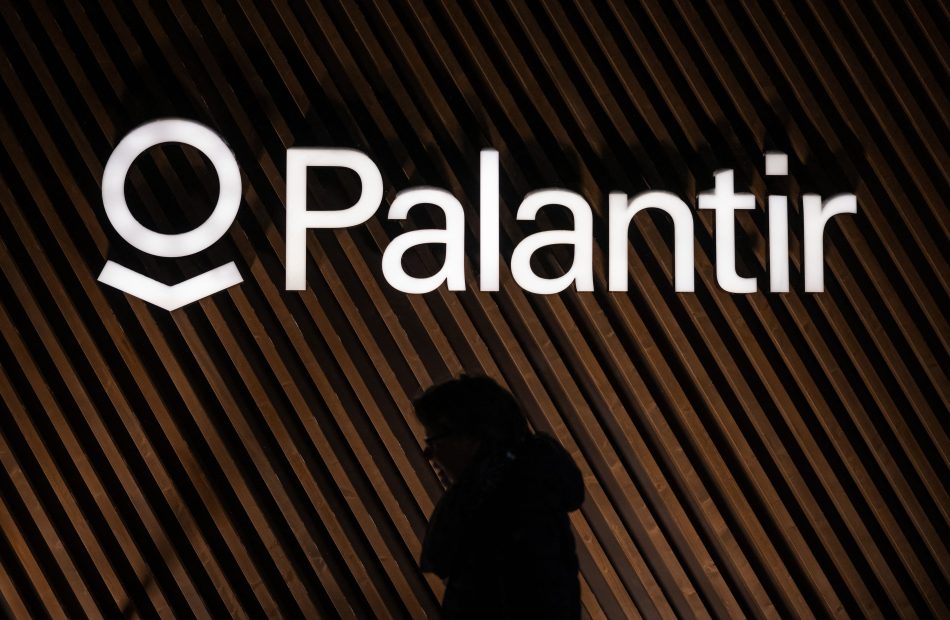Move Over Nvidia and Palantir, This AI Juggernaut Is Up 628% Year to Date. Can the Stock's Momentum Continue?
Move over Nvidia and Palantir Technologies, AppLovin (NASDAQ: APP) took over as the top-performing artificial intelligence (AI) stock in 2024 thanks to the share price surge that followed the release of its third-quarter results. The price jump puts the stock up about 628% year to date as of Nov. 9.
AppLovin owns a portfolio of gaming apps but its primary business is an adtech solution to help mobile app developers attract users and better monetize their apps. Since the launch of its Axon 2 AI-based advertising technology in the second quarter of 2023, the company has seen explosive growth.
Start Your Mornings Smarter! Wake up with Breakfast news in your inbox every market day. Sign Up For Free »
Let’s take a close look at the company’s Q3 results and whether the stock is still a buy.
Axon 2 has been the source behind nearly all of AppLovin’s growth, with its software platform revenue soaring 66% to $835 million. The company’s legacy apps business, meanwhile, saw revenue increase 1% to $369 million. Overall revenue climbed 39% to $1.2 billion, topping the $1.13 billion consensus as compiled by LSEG.
The company continues to see a ton of operating leverage in its business as sales climb, with gross margin for the quarter improving to 77.5% from 69.3% a year ago. The revenue surge also came despite the company reducing its sales and marketing spend by 3%. That combination is quite remarkable.
Earnings per share (EPS) surged from $0.30 a year ago to $1.25. Adjusted earnings before interest, taxes, depreciation, and amortization (EBITDA), meanwhile, climbed 72% to $722 million. Software platform adjusted EBITDA jumped 78% to $653 million, while its apps business grew adjusted EBITDA by 19% to $68 million as the company optimized the business’s cost structure.
The company produced $551 million in operating cash flow and $545 million in free cash flow. It ended the quarter with $2.9 billion in net debt.
AppLovin guided for fourth-quarter revenue to come in a range of $1.24 billion to $1.26 billion. That would equate to growth of between 30% and 32% and is above the company’s long-term goal to grow revenue by between 20% and 30%. It is projecting Q4 adjusted EBITDA to be between $475 million and $495 million, up from $476 million a year ago.
AppLovin has proven to be one of the biggest AI winners, as its Axon 2 AI adtech platform has led to soaring revenue with its gaming customers. At the same time, it has seen a ton of operating leverage in its business, being able to realize tremendous growth while not increasing its sales and marketing spend and improving its gross margin.
Barrick Falls Behind Rivals as No. 2 Miner Misses Boost From Bullion Boom
(Bloomberg) — Most of the world’s top gold miners have seen their shares surge this year as bullion prices hit repeated record highs. Not Barrick Gold Corp.
Most Read from Bloomberg
Missed production targets, higher operational costs and political turbulence at mines in Africa and Asia have investors turning increasingly sour on the world’s second-biggest gold producer. On Thursday, Barrick posted gold output that missed analysts’ estimates for the 11th straight quarter.
Barrick is one of several miners that have struggled to capitalize on the bullion boom amid higher mining costs and weaker output. But among the largest precious metal producers — Newmont Corp., Agnico Eagle Mines Ltd. and AngloGold Ashanti Ltd. — Barrick has routinely underperformed, with its shares virtually unchanged since the beginning of January. Gold, meanwhile, has soared 30% in the period.
Chief Executive Officer Mark Bristow’s explanation: “We’re rebuilding the business.”
Barrick has spent years working to improve its balance sheet after amassing debt from acquisitions. Bristow, who joined as CEO in 2019 as part of the Canadian company’s takeover of Randgold Resources Ltd., has paid down that debt while exercising restraint in dealmaking. He has also pursued diversification into copper.
Bristow’s explanation doesn’t seem to be winning over investors. Some of Barrick’s top investors have sold off shares while boosting stakes in competitors. Blackrock Inc., one of Barrick’s biggest shareholders, reduced its stake while buying into Agnico Eagle and Newmont, according to regulatory disclosures in November. Other major investors like Van Eck Associates Corp., First Eagle Investment Management LLC and Capital Group Inc. also trimmed their holdings in recent months.
Barrick isn’t alone in drawing scrutiny from shareholders whose expectations have been lifted by gold’s rally. Larger rival Newmont suffered its biggest one-day stock drop since 1997 last month after posting disappointing quarterly earnings.
Bristow said investors are undervaluing Barrick’s stock. “It’s our job as managers to make sure that the market properly understands us,” he said in an interview.
Barrick’s strengths lie in its complex of productive mines in the US, along with huge operations in Papua New Guinea and Mali. It has diversified through expanding in copper just as the global energy transition boosts demand for the wiring metal. The company has relatively little debt.
Why I Sold All of My Palantir Stock
Palantir (NYSE: PLTR) was among my favorite holdings when I bought shares during the bear market of 2022. Its ability to deliver insights by applying artificial intelligence (AI) and machine learning to draw conclusions made the company stand out among SaaS stocks.
That became even more true upon the release of its Artificial Intelligence Platform (AIP). That product delivers productivity gains that were game-changing for its clients.
Start Your Mornings Smarter! Wake up with Breakfast news in your inbox every market day. Sign Up For Free »
Despite such benefits, I decided to part with my entire Palantir position right before the Nov. 4 earnings announcement. Admittedly, that decision may baffle many growth investors since the stock surged following the earnings release for the third quarter of 2024. Nonetheless, the real question is whether I stick with this decision over time. Here’s why.
The decision to sell did not come easy. My most painful investing lesson involved my sale of Booking Holdings (NASDAQ: BKNG) during the dot-com bust after I had made a quick profit. While the sale looked like the right decision for several years, it has since risen almost 100-fold from where I sold it. By not holding (or at least repurchasing the shares), I missed out on what could have been a life-changing gain.
Consequently, I now have to ask myself whether I made the same mistake with Palantir. I purchased the stock at an average of $9 per share, giving me a gain of approximately 370% as I sold at $42 per share.
The most crucial factor in my decision to sell was valuation. When I sold, the forward P/E ratio was at 115, and the price-to-sales (P/S) ratio was 40, and both signify a very expensive stock by nearly any measure. Despite both ratios rising from that point, the valuation led me to question whether Palantir shares still offered significant upside over the near term.
With enough growth, I could have forgiven the high multiples, especially with the results reported in the AIP boot camps. Palantir claimed in the second quarter of 2024 that one convenience store chain went from prototype to paid pilot in 25 days, converting its inventory management and price optimization case after the pilot.
Another attendee reported achieving more in one day with AIP than a hyperscaler had in four months. Such eye-popping productivity gains should accrue to Palantir’s top line. Still, I felt the portion of that growth accruing to Palantir was not enough to justify its stock price.
In the first three quarters of 2024, revenue increased by 26% to just over $2 billion. Also, the slow growth in operating expenses allowed net income in the first nine months of 2024 to spike to $383 million, up from $116 million in the same period in 2023.
Warren Buffett's favorite book, 'The Intelligent Investor,' is still the 'best book about investing' 75 years later
When anyone asks me to recommend one book on investing, the answer is simple: Benjamin Graham’s venerated “The Intelligent Investor.”
The classic written by Graham, the father of financial analysis and value investing, was first published in 1949.
One superstar devotee of Graham is Warren Buffett, who was one of his students at Columbia University. After graduation, Buffett worked for Graham’s company, Graham-Newman Corporation, until Graham retired.
The revised edition has now landed. In the preface, Buffett weighs in: “I read the first edition of this book early in 1950, when I was nineteen. I thought then that it was by far the best book about investing ever written. I still think it is.”
The original text is untouched and features commentary on each chapter from Wall Street Journal writer Jason Zweig, who writes The Intelligent Investor column.
Here’s what Zweig had to say in a conversation with Yahoo Finance. Edited excerpts:
Kerry Hannon: For our readers who don’t know much about Benjamin Graham, can you tell us a little about him?
Jason Zweig: You can make a good case that Graham was one of the most brilliant people of the 20th century. His intelligence, had it ever been measured, would’ve been off the charts.
He was admitted to Columbia when he was 17. He worked a full-time job at night for much of the time that he was in college. He graduated in two-and-a-half years, second in his class. He was offered professorships in three different departments before graduation day. He held two US patents.
He wrote an article in the American Mathematical Society Journal when he was 23, about how people were teaching calculus all wrong. He wrote two books on international trade. He was fluent in ancient Greek and Latin. He could speak and read at least six different languages.
And he was a brilliant writer. We bold-faced quite a bit of his original text in this new edition because I wanted to highlight the best passages in the book and how beautifully written they are — to help people learn from this master.
Even though it’s many years after his death, his words still have incredible power and beauty. And I hope this edition will help people appreciate not just the practicality of the advice, but how magnificently written it is.
Read more: How to start investing: A step-by-step guide
Can you define “intelligent investor” for us?
Benjamin Graham was very clear when he wrote this book what he meant by the word intelligent in the title. He says, “I don’t mean somebody with a high IQ. I don’t mean somebody with a PhD or a master’s in economics or finance. I don’t mean a professional financial analyst or a financial planner or a CPA. All I mean is that you should have good judgment and that it’s much more like being wise than being smart.”
3 Artificial Intelligence (AI) Stocks That Could Go Parabolic
The rapid growth of the artificial intelligence (AI) market drove many stocks to record highs over the past few years. That’s why shares of Nvidia, the chipmaking bellwether of that booming market, surged 2,760% over the past five years.
Some investors might be reluctant to chase those breakneck gains, but plenty of overlooked AI stocks could still go parabolic in the future. Let’s take a look at three stocks that fit this description: Innodata (NASDAQ: INOD), MicroStrategy (NASDAQ: MSTR), and Lumen Technologies (NYSE: LUMN).
Start Your Mornings Smarter! Wake up with Breakfast news in your inbox every market day. Sign Up For Free »
Innodata was once considered a slow-growth IT services and enterprise software company. However, its stock soared from about $1 at the end of 2019 to about $32 today. That massive rally was the result of an AI-driven acceleration in its top line.
Revenue rose 10% in 2023. But in the first nine months of 2024, sales soared 83% year over year to $111 million as its adjusted earnings before interest, taxes, depreciation, and amortization (EBITDA) jumped 266% to $20 million. It also turned profitable on the basis of generally accepted accounting principles (GAAP). That explosive growth stemmed from its rollout of generative AI tools for five of the “Magnificent Seven” companies.
For the full year, Innodata expects its revenue to soar in the range of 88% to 92% as more companies adopt its generative AI services. From 2024 to 2026, analysts expect its sales to have a compound annual growth rate (CAGR) of 25% as its adjusted EBITDA experiences a CAGR of 29%.
Those are stellar growth rates for a stock that trades at 4 times next year’s sales and 37 times its adjusted EBITDA. Innodata has already had a great run over the past five years, but it could head even higher as it locks in more big tech companies with its data processing and AI capabilities.
MicroStrategy was once dismissed as a slow-growing enterprise software company, then it started to hoard Bitcoin in 2020. At the end of its latest quarter, it held 252,220 of the digital tokens with a current market value of $19.26 billion. That’s nearly a third of MicroStrategy’s enterprise value of $59.1 billion.
The bulls believe MicroStrategy’s hoarding strategy will pay off if the top cryptocurrency’s price skyrockets over the next few years. In theory, the rising value of its Bitcoin holdings could offset the slower growth of its enterprise software business.
However, MicroStrategy is also a generative AI company. Last October, it rolled out MicroStrategy AI, a platform that enables companies to integrate generative AI features into their existing data applications. It expects those new features, along with the transformation of its on-site applications into cloud-based services, to stabilize the growth of its core software business as it accumulates more crypto.
As Tesla Market Capitalization Soars Past $1 Trillion, Dan Ives Calls Musk's Trump Bet 'Poker Move For The Ages: Gene Munster Say It Is 'More Than Just A Meme Stock'
On Friday, the market cap of Tesla Inc. TSLA soared past the $1 trillion mark, a surge attributed to CEO Elon Musk’s bet on President-elect Donald Trump.
What Happened: Following Trump’s victory and his comeback as the 47th U.S. president, Tesla’s stock experienced a sharp rally, propelling Musk’s fortune past the $300 billion mark.
During an appearance on Yahoo Finance, Wedbush analyst Dan Ives praised Musk’s support of Trump as a “poker move for the ages.” He anticipates an expedited autonomous sector, which could be worth $1 trillion alone for Tesla’s AI segment.
See Also: Elon Musk’s Mom Knew He Was A ‘Genius’ By 3 Years Old But Worried He’d ‘End Up In A Basement’
In a separate post, Gene Munster, managing partner at Deepwater Asset Management, noted Tesla’s impressive 44% rally over the past 12 trading days. “This is more than just a meme stock,” he wrote on X, formerly Twitter.
Munster believes that Tesla’s accelerating delivery growth and the long-term opportunity around autonomy will power the fundamentals leading to further price appreciation. “
Why It Matters: Tesla’s stock surged nearly 29% this week following Trump’s victory in the U.S. presidential election, as investors grow hopeful that President-elect’s return to the White House could favor the automaker.
The Tesla CEO was a key political supporter of Trump’s 2024 campaign, reportedly donating over $130 million to aid his re-election.
Trump’s victory speech also praised Musk, dedicating nearly four minutes to call him a “super genius” and highlighting achievements, including SpaceX launches and its expanding satellite internet network.
Musk has also shown interest in leading a proposed Department of Government Efficiency (DOGE) to reduce federal waste. Trump has suggested Musk for the role of “Secretary of Cost-Cutting,” overseeing efforts to trim $2 trillion in federal spending.
Last month, Tesla reported third-quarter revenue of $25.18 billion, reflecting an 8% year-over-year increase. However, the figure fell short of the Street consensus estimate of $25.37 billion, according to data from Benzinga Pro.
Price Action: Tesla shares closed Friday’s session with an 8.19% gain, finishing at $321.22. In after-hours trading, the stock rose further, reaching $322.80, according to Benzinga Pro data.
Read Next:
Disclaimer: This content was partially produced with the help of Benzinga Neuro and was reviewed and published by Benzinga editors.
Photo courtesy: Tesla
Market News and Data brought to you by Benzinga APIs
© 2024 Benzinga.com. Benzinga does not provide investment advice. All rights reserved.
Ethereum Skyrocket 70% To Reclaim Its Peak Once This Happens, Says Crypto Expert
Ethereum ETH/USD could be on the cusp of a significant rally, according to a well-known crypto analyst, which would see the cryptocurrency skyrocket by nearly 70% to reclaim its all-time high.
What Happened: Guy Turner, the host of Coin Bureau, shared insights with his 2.53 million YouTube followers, suggesting that Ethereum (ETH) might reach its all-time high in 2025, following the anticipated Pectra upgrade.
The Pectra upgrade, expected in 2025, is a two-part hard fork designed to improve Ethereum’s speed, scalability, and usability. Binance highlights that these changes will enable gas fees to be paid with any digital asset, offer larger rewards to bigger validators, and enhance the Ethereum Virtual Machine (EVM).
Turner believes these improvements could be the catalyst Ethereum needs for a breakout, potentially attracting institutional investors. He stated, “ETH has been desperate for a breakout for quite some time. This could be the spark it needs.”
See Also: El Salvador’s Bitcoin Bet Is Paying Off—Here’s How Much The Country Is Up
Currently, Ethereum trades at $2,902, marking a 2% increase for the day. The cryptocurrency’s all-time high was approximately $4,900 in November 2021, and a return to that level would mean a 68% increase from its present value.
Why It Matters: The potential surge in Ethereum’s value aligns with broader market predictions. A recent note from Standard Chartered forecasts a fourfold increase in the digital assets market cap by the end of 2025, driven by anticipated regulatory shifts and mainstream adoption. This aligns with Turner’s prediction, suggesting a favorable environment for Ethereum’s growth.
Additionally, Ali Martinez, another prominent analyst, has expressed bullish sentiments on Ethereum, citing an attractive risk-to-reward ratio. Martinez’s strategy involves setting a stop-loss below $1,880 and targeting a take-profit price of $6,000, further indicating potential upward momentum for Ethereum.
These developments come amid discussions about the potential impact of the Bitcoin Act, which could reshape the U.S. economy by designating Bitcoin as a strategic reserve asset.
Price Action: Ethereum is currently trading at $2,975, up by more than 2.3% over the past 24 hours, according to Benzinga Pro data.
Read Next:
Disclaimer: This content was partially produced with the help of AI tools and was reviewed and published by Benzinga editors.
Photo courtesy: Shutterstock
Market News and Data brought to you by Benzinga APIs
© 2024 Benzinga.com. Benzinga does not provide investment advice. All rights reserved.
Steve Madden Announces Plans To Move Production To Avoid Trump Tariffs, But There's A Catch
Steve Madden Ltd. SHOO, a major player in the footwear industry valued at $3 billion, has announced plans to significantly reduce its manufacturing operations in China. This strategic shift is in response to President-elect Donald Trump’s proposed tariffs on Chinese imports.
What Happened: CEO Edward Rosenfeld revealed that the company intends to cut its production in China by half, as reported by CNN. Currently, 70% of Steve Madden’s imports come from China.
The company plans to decrease this to between 40% and 45% over the next year by shifting production to countries like Cambodia, Vietnam, Mexico, and Brazil. This strategy aims to circumvent the potential tariffs, which could reach up to 60% on Chinese goods.
Why It Matters: The decision by Steve Madden to move production is part of a broader response to President-elect Trump’s aggressive tariff proposals.
Trump has suggested imposing a 20% tariff on all imports and even higher rates on Chinese goods. This has raised concerns among companies heavily reliant on Chinese manufacturing, such as Apple Inc. and others, about potential cost increases that might be passed on to consumers.
Furthermore, a study by the National Retail Federation warns that these tariffs could lead to a significant reduction in consumer spending, potentially costing Americans $78 billion annually. The study highlights the impact on essential items like apparel and appliances, which could see price hikes, disproportionately affecting low-income families.
Economist Justin Wolfers thinks that the anticipation of these tariffs might drive a surge in consumer spending on big-ticket items in the short term as people rush to make purchases before the tariffs take effect.
Read Next:
Disclaimer: This content was partially produced with the help of AI tools and was reviewed and published by Benzinga editors.
Photo courtesy: Wikimedia Commons
Market News and Data brought to you by Benzinga APIs
© 2024 Benzinga.com. Benzinga does not provide investment advice. All rights reserved.
ALLR DEADLINE: ROSEN, RECOGNIZED INVESTOR COUNSEL, Encourages Allarity Therapeutics, Inc. Investors With Losses in Excess of $100K to Secure Counsel Before Important Deadline in Securities Class Action – ALLR
NEW YORK, Nov. 09, 2024 (GLOBE NEWSWIRE) —
WHY: Rosen Law Firm, a global investor rights law firm, reminds purchasers of securities of Allarity Therapeutics, Inc. ALLR between May 17, 2022 and July 19, 2024, both dates inclusive (the “Class Period”), of the important November 12, 2024 lead plaintiff deadline.
SO WHAT: If you purchased Allarity securities during the Class Period you may be entitled to compensation without payment of any out of pocket fees or costs through a contingency fee arrangement.
WHAT TO DO NEXT: To join the Allarity class action, go to https://rosenlegal.com/submit-form/?case_id=27420 or call Phillip Kim, Esq. toll-free at 866-767-3653 or email case@rosenlegal.com for information on the class action. A class action lawsuit has already been filed. If you wish to serve as lead plaintiff, you must move the Court no later than November 12, 2024. A lead plaintiff is a representative party acting on behalf of other class members in directing the litigation.
WHY ROSEN LAW: We encourage investors to select qualified counsel with a track record of success in leadership roles. Often, firms issuing notices do not have comparable experience, resources or any meaningful peer recognition. Many of these firms do not actually litigate securities class actions, but are merely middlemen that refer clients or partner with law firms that actually litigate cases. Be wise in selecting counsel. The Rosen Law Firm represents investors throughout the globe, concentrating its practice in securities class actions and shareholder derivative litigation. Rosen Law Firm achieved the largest ever securities class action settlement against a Chinese Company at the time. Rosen Law Firm was Ranked No. 1 by ISS Securities Class Action Services for number of securities class action settlements in 2017. The firm has been ranked in the top 4 each year since 2013 and has recovered hundreds of millions of dollars for investors. In 2019 alone the firm secured over $438 million for investors. In 2020, founding partner Laurence Rosen was named by law360 as a Titan of Plaintiffs’ Bar. Many of the firm’s attorneys have been recognized by Lawdragon and Super Lawyers.
DETAILS OF THE CASE: According to the lawsuit, throughout the Class Period, defendants made false and/or misleading statements and/or failed to disclose that: (1) defendants had overstated the Dovitinib, Allarity’s drug candidate which treats renal cell carcinoma, new drug application’s (“NDA”) continued regulatory prospects; (2) Allarity and three of its former officers had engaged in illegal, illicit, and/or otherwise improper conduct in connection with the Dovitinib NDA and/or the Dovitinib-DRP premarket approval application (“PMA”); (3) the foregoing misconduct subjected Allarity to an increased risk of regulatory and/or governmental scrutiny and enforcement action, as well as significant legal, monetary, and reputational harm; (4) following Allarity’s announcement that it was, in fact, being investigated for wrongdoing in connection with the Dovitinib NDA and/or the Dovitinib-DRP PMA, Allarity downplayed the substantial likelihood that an enforcement action would result from such investigation; and (5) as a result, Allarity’s public statements were materially false and misleading at all relevant times. When the true details entered the market, the lawsuit claims that investors suffered damages.
To join the Allarity class action, go to https://rosenlegal.com/submit-form/?case_id=27420 or call Phillip Kim, Esq. toll-free at 866-767-3653 or email case@rosenlegal.com for information on the class action.
No Class Has Been Certified. Until a class is certified, you are not represented by counsel unless you retain one. You may select counsel of your choice. You may also remain an absent class member and do nothing at this point. An investor’s ability to share in any potential future recovery is not dependent upon serving as lead plaintiff.
Follow us for updates on LinkedIn: https://www.linkedin.com/company/the-rosen-law-firm, on Twitter: https://twitter.com/rosen_firm or on Facebook: https://www.facebook.com/rosenlawfirm/.
Attorney Advertising. Prior results do not guarantee a similar outcome.
——————————-
Contact Information:
Laurence Rosen, Esq.
Phillip Kim, Esq.
The Rosen Law Firm, P.A.
275 Madison Avenue, 40th Floor
New York, NY 10016
Tel: (212) 686-1060
Toll Free: (866) 767-3653
Fax: (212) 202-3827
case@rosenlegal.com
www.rosenlegal.com

Market News and Data brought to you by Benzinga APIs
© 2024 Benzinga.com. Benzinga does not provide investment advice. All rights reserved.
Cohen & Steers Announces Changes to Realty Indexes
NEW YORK, Nov. 8, 2024 /PRNewswire/ — Cohen & Steers, Inc. CNS announced today pending changes to its Global Realty Majors Portfolio Index (GRM) and International Realty Majors Portfolio Index (IRP), effective as of the close of business on November 15, 2024.
|
Cohen & Steers Global Realty Majors Portfolio Index (GRM) |
|
|
Added component (symbol) |
Removed component (symbol) |
|
Charter Hall Group (CHC.AU) |
Daiwa House REIT Investment Corp. (8984.JP) |
|
Cohen & Steers International Realty Majors Portfolio Index (IRP) |
|
|
Added component (symbol) |
Removed component (symbol) |
|
Charter Hall Group (CHC.AU) |
Daiwa House REIT Investment Corp. (8984.JP) |
|
Big Yellow Group Plc (BYG.LN) |
Cofinimmo SA (COFB.BB) |
These free-float adjusted, modified market capitalization-weighted total return indexes of selected real estate equity securities are quoted intraday on a real-time basis by the Chicago Mercantile Exchange. The Indexes’ modified capitalization-weighted approach and qualitative screening process emphasize companies that Cohen & Steers believes are leading the securitization of real estate globally.
The Indexes can be used as indexing benchmarks, stock selection universes, underlying indexes for derivative instruments or performance benchmarks. All index weightings are independently calculated by Standard & Poor’s.
Website: https://www.cohenandsteers.com/
Symbol: CNS
About Cohen & Steers. Cohen & Steers is a leading global investment manager specializing in real assets and alternative income, including listed and private real estate, preferred securities, infrastructure, resource equities, commodities, as well as multi-strategy solutions. Founded in 1986, the firm is headquartered in New York City, with offices in London, Dublin, Hong Kong, Tokyo and Singapore.
![]() View original content:https://www.prnewswire.com/news-releases/cohen–steers-announces-changes-to-realty-indexes-302300243.html
View original content:https://www.prnewswire.com/news-releases/cohen–steers-announces-changes-to-realty-indexes-302300243.html
SOURCE Cohen & Steers, Inc.
Market News and Data brought to you by Benzinga APIs
© 2024 Benzinga.com. Benzinga does not provide investment advice. All rights reserved.









